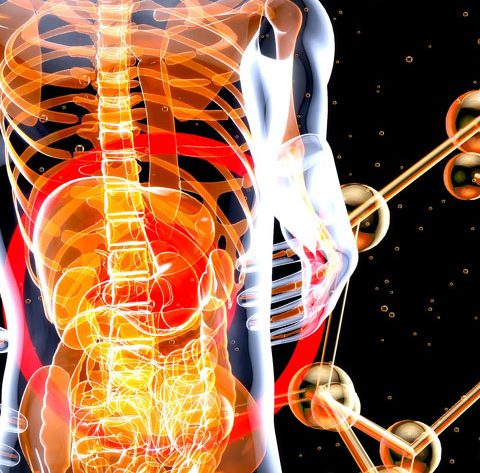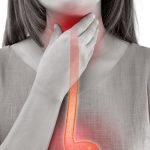When a doctor states that you have autoimmune disease, it can be scary and seem like a death sentence, but it doesn’t necessarily mean that you will always have the same symptoms.
Autoimmune diseases are a group of conditions in which the immune system attacks healthy cells in the body, leading to inflammation and tissue damage. While many doctors say there is no cure for autoimmune diseases, lifestyle changes, including dietary modifications, can help manage symptoms and improve overall health.
However, there have been many people I read about who stated that they were able to “cure” or overcome all symptoms of their autoimmune disease. This is certainly something worth researching further as well if you are suffering from an autoimmune disorder.
After having many sudden health conditions after taking an antibiotic called Ciprofloxacin, I had stumbled upon a lot of research in this area.
In this article, we’ll explore some general dietary recommendations for individuals with autoimmune diseases, including tips on what to eat and what to avoid, as well as the benefits of staying hydrated and working with a registered dietitian.
DIET & AUTOIMMUNE DISEASE
The dietary recommendations for someone with an autoimmune disease will depend on the specific condition and the individual’s unique needs. However, here are some general tips that may be helpful:
- Eat a balanced and nutrient-dense diet: Focus on consuming a variety of whole foods, including fruits, vegetables, whole grains, lean proteins, and healthy fats. This will help ensure you are getting all of the vitamins and minerals your body needs to function properly.1 Note that “whole foods” and grains do not have the same effect for each person. That leads to the next tip below…
- Avoid inflammatory foods: Some foods can trigger inflammation in the body, which can exacerbate autoimmune symptoms. Common culprits include sugar, refined carbohydrates, processed foods, and unhealthy fats. Each person might have different things that are inflammatory to them, but not to others (and vis versa).2 I personally had my doctor order a Wallingford Food Allergy Test for me, and it found some foods that might be triggers for me. If you have a test like this, it might help you find things that may be affecting you in ways you wouldn’t expect. The hard thing with food that causes inflammation is that you don’t always see an immediate effect. Some sources say that you can experience an inflammatory reaction right away, hours later, a day later, days later, or even a week or so later. It can also help to keep a food diary. There are even some apps that are helpful for keeping a food diary in because they can find patterns in certain foods you eat and symptoms you experience.
- Consider an elimination diet: Many people with autoimmune diseases find relief by eliminating certain foods from their diet. Some of the most common culprits include gluten, dairy, soy, and nightshades (like tomatoes, eggplants, and peppers).3 And again, it helps to consider allergy testing. It’s usually a good idea to consult with a healthcare professional, such as a registered dietitian, before starting an elimination diet. They can help you determine if it’s the right approach for you and provide guidance on how to safely and effectively implement it. Elimination diets can be restrictive, but they can also be wonderful. A doctor named Walter Kempner created a rice diet, which was essentially an elimination diet as it involved the strict restriction of certain foods and food groups. The diet consisted primarily of white rice, which was easily digestible, and often times not inflammatory for many people. Doctor Kempner’s diet had astonishing healing effects on his patients.4
- Stay hydrated: Adequate hydration is important for overall health and can help support immune function. One of my favorite books is called Water: For Health, for Healing, for Life: You’re Not Sick, You’re Thirsty by F. Batmanghelidj MD. It shares in great detail the observations of the doctor when helping his patients with their hydration. The book argues that many common health problems are caused by chronic dehydration, and that increasing water intake can be an effective way to prevent and treat various illnesses.5 Many people do not realize they are dehydrated and it’s effects on the body. Also, some inflammatory conditions and medications further dehydrate the body. Proper hydration is key to better health.
- Consult with a registered dietitian: A registered dietitian can help you develop a personalized eating plan that takes into account your specific condition, symptoms, and dietary preferences. Though they might not be necessary, they may be helpful for getting you started. What might be even better than a dietitian is a doctor who specializes in functional medicine. Not all dietitian or doctors will have the best information if they don’t specialize also in autoimmune disorders as well. I have received all sorts of well-intended advice from doctors, but only my previous integrative medicine doctor had advice that went over the larger picture.
Remember, there is no one-size-fits-all approach to nutrition for autoimmune diseases, so it’s important to work with a healthcare professional to develop a plan that works for you.
Alternative Options:
There are also many natural alternatives that have been used to aid in remission of autoimmune diseases, though it’s important to note that these remedies may not be effective for everyone and should always be discussed with a healthcare provider. Some examples include:
- Probiotics: Research suggests that certain strains of probiotics can help regulate the immune system and reduce inflammation, making them a potential therapy for autoimmune diseases. Probiotics are the one thing I believe in more than any other supplement. What is really important though is getting your gut bacteria in order. Many of us have an imbalance in our gut bacteria. We don’t have the same connection with nature that we used to and we’re indoors much of the time and not getting the bacterial exposure like we would have 50 years ago. Not to mention the overuse of antibiotics has really taken a toll on our gut microbiome.6
- Omega-3 fatty acids: Omega-3 fatty acids found in fatty fish, nuts, and seeds have been shown to have anti-inflammatory effects, which may be beneficial for those with autoimmune diseases. Considering the diets of most people are very high in omega-6 fatty acids, this excess in the omega-6 throws off your healthy ratio of omega-3 fatty acids. This leads to more inflammation and ill health.7
- Turmeric: Turmeric is a spice that contains the compound curcumin, which has potent anti-inflammatory properties and may help alleviate symptoms of autoimmune diseases. Many people find that turmeric is helpful for them, but some people (like my mother) found that it upset her stomach. But in general, it is a wonderful natural anti-inflammatory, which also promotes good gut bacteria balance.8
- Vitamin D: Vitamin D is important for immune function, and research suggests that people with autoimmune diseases may be deficient in this nutrient. Supplementation with vitamin D may help improve symptoms and prevent flare-ups. So many people are vitamin D deficient. We are often indoors and don’t get the minimum exposure to the sun to create sufficient vitamin D.9 Sometimes supplementation is the only way to balance this. I always get my vitamin D checked by my doctor during every annual physical in order to see where I’m at with this.
- Acupuncture: Acupuncture has been shown to have anti-inflammatory effects and may help reduce pain and improve overall well-being in people with autoimmune diseases. I have not personally tried acupuncture, but so many people I know have recommended it to me for tendon issues, autoimmune disorders, and other health conditions. It is an interesting field to research. It appears to go beyond the placebo effect in it’s effectiveness. I wrote a short article about this topic, containing multiple sources, if you are interested.
- Intermittent Fasting: This type of fasting can benefit individuals with autoimmune diseases by reducing inflammation, improving gut health, regulating the immune system, and promoting weight loss. By abstaining from food or reducing calorie intake for a certain period of time, intermittent fasting can reduce inflammation, which is a key component of autoimmune diseases, and improve the health of the gut microbiome, which has been linked to autoimmune diseases. Additionally, intermittent fasting can help regulate the immune system, reducing the frequency and severity of attacks.10
It’s important to note that while natural alternatives may be effective for some individuals, they should not be used as a substitute for medical treatment. Always consult with a healthcare provider before starting any new supplement or therapy.
Footnotes
- Harvard T.H. Chan School of Public Health. (2021). Healthy eating plate & healthy eating pyramid. Retrieved from https://www.hsph.harvard.edu/nutritionsource/healthy-eating-plate/
- Smith, John. “Fighting Inflammation with Food.” Eating Well, 1 June 2022, https://www.eatingwell.com/article/290585/fighting-inflammation-with-food/
- Sweeney, Laura. “How Diet Can Help Manage Autoimmune Diseases.” Healthline, 4 Mar. 2021, https://www.healthline.com/health/autoimmune-disease-diet
- Pamplin, John C. “Dr. Walter Kempner and the Rice Diet: Challenging Conventional Wisdom.” Journal of Nutrition 133.2 (2003): 328-32. Print.
- Batmanghelidj, F. Water: For Health, for Healing, for Life: You’re Not Sick, You’re Thirsty. Grand Central Life & Style, 2003.
- Mercola, Joseph. “The Importance of Probiotics for Autoimmune Disease.” Mercola, 8 Feb. 2018, https://articles.mercola.com/sites/articles/archive/2018/02/08/probiotics-for-autoimmune-disease.aspx.
- Murray, Michael T. “Omega-3 Fatty Acids in Inflammation and Autoimmune Diseases.” Journal of the American College of Nutrition, vol. 21, no. 6, 2002, pp. 495-505.
- Petre, Alina. “Turmeric: Health Benefits, Uses, and Risks.” Medical News Today, 25 May 2021, https://www.medicalnewstoday.com/articles/318405.
- Holick, Michael F. “Vitamin D Deficiency.” New England Journal of Medicine, vol. 357, no. 3, 2007, pp. 266-281.
- Ganesan, Kirthana, et al. “Intermittent Fasting: The Choice for a Healthier Lifestyle.” Cureus, vol. 10, no. 7, 2018, doi:10.7759/cureus.2947.



